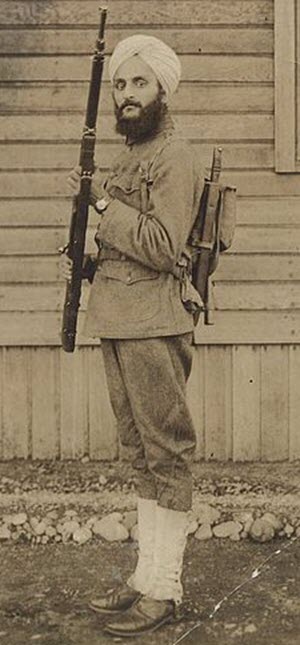United States v. Bhagat Singh Thind, 261 U.S. 204 43 S.Ct. 338, 1923 A.M.C. 317, 67 L.Ed. 616 (1923) Argued Jan. 11, 12, 1923; Decided Feb. 19, 1923.
Summary
 Bhagat Singh Thind (October 3, 1892 – September 15, 1967) was a Sikh American writer, scientist, and lecturer on spirituality who served in the U.S. Army during World War I and was involved in an important legal battle over the rights of Indians to obtain U.S. citizenship. Wikipedia
Bhagat Singh Thind (October 3, 1892 – September 15, 1967) was a Sikh American writer, scientist, and lecturer on spirituality who served in the U.S. Army during World War I and was involved in an important legal battle over the rights of Indians to obtain U.S. citizenship. Wikipedia
Thind enlisted in the U.S. Army a few months before the end of World War I. After the war he sought to become a naturalized citizen, following a legal ruling that Caucasians had access to such rights. In 1923, the Supreme Court ruled against him in the case United States v. Bhagat Singh Thind, which retroactively denied all Indian-Americans born abroad citizenship for failing to meet the definition of white person "in accordance with the understanding of the common man". Wikipedia
Thind remained in the U.S., earned his PhD in theology and English literature at the University of California, Berkeley, and delivered lectures in metaphysics. Basing his lessons on Sikh religious philosophy, he enhanced his lectures with references to the scriptures of several religions and the works of Ralph Waldo Emerson, Walt Whitman, and Henry David Thoreau. He campaigned for the independence of India from the British Empire. In 1936, Thind applied successfully for U.S. citizenship through the State of New York. Wikipedia


